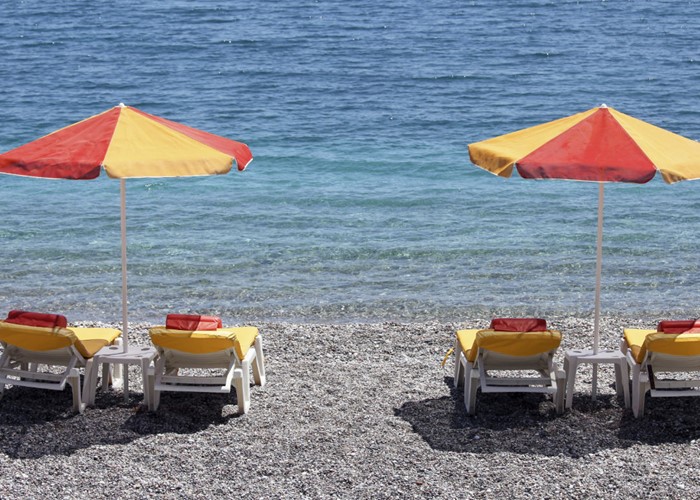How to avoid blowing your holiday budget

Make sure you have a memorable holiday for all the right reasons with our top budgeting tips.
Millions of us will be heading off on holiday, either home or away, over the coming weeks and months.
Holidays are a time to relax and enjoy some well-deserved time off from the daily grind. But it’s important not to come back with a huge pile of debts because you overspent.
Here are some top tips for making sure you only have good memories of this summer’s break.
If you're going abroad, don't forget to arrange your travel insurance and any foreign currency you want before you set off.
Plan a budget and stick to it
Ideally, you’ll have some money set aside to pay for the extra treats we all enjoy on holiday – from drinks to days out to dancing the night away. Before you go, make sure you plan how much you can afford to spend, either by breaking it down into a daily spend or by working out what you can afford over the course of your whole break.
If you’re worried you might overspend, a prepaid card can help you budget. You just load the cash onto the card before you go and use it to withdraw cash from ATMs or pay in shops or restaurants as you would with a bank debit card. You can find out more about the best cards out there in The best prepaid cards for spending abroad.
If you don’t have money saved up, think about a credit card that has an interest-free period on purchases. This will give you some time to pay back your spending when you get home. However, you should ensure you can afford to pay it back before the interest-free period ends.
The Post Office Platinum MasterCard offers three months with no interest to pay and, more importantly, no commission charge on overseas purchases. The Nationwide Visa offers a whopping 15-month 0% period on purchases and also doesn’t charge for spending overseas, though it comes with strings attached in that you need to use it at home to build up an ‘allowance’ of commission-free purchases abroad.
If you don’t pay off your bill in time, you’ll be charged a representative APR (the annual rate of interest and other charges) of 17.8% on the Post Office and 17.9% on the Nationwide card.
If you’re 50 or over, the Saga Over 50s Platinum Visa card has nine-month 0% period, with a representative APR of 11.9%.
Once you've planned your budget, do your very best to stick to it.
Do some research
You can save money by doing a bit of research before you head off on holiday. For example, if you’re going abroad and you’re not on a package holiday, how are you going to get to your destination from the airport? Is there a bus or train, which will most likely be much cheaper than a taxi? Will it be cheaper to buy suncream and any other essentials at home or when you get there?
Use the forums of websites such as Lonely Planet and Trip Advisor to find out more before you go.
Use your accommodation wisely
If you’re on a bed and breakfast break, fill up at breakfast time and you’ll only need a light lunch at most. Having said that, I’m not an advocate of the ‘classic’ money-saving tips of hiding rolls, fruit and other food in napkins and whisking it out of the hotel dining room (many hotels and guesthouses have banned this).
Even if you’re not self-catering, you can still buy things to keep in your room, such as fruit, snacks and juices that will keep you going during the day. If you have a fridge in your room, use it.
Tap into local knowledge
If you’re planning on eating out, it can be easy to just head for the nearest bar or restaurant. But if you’re on a budget, then why not ask the locals, such as your hotel staff, to recommend somewhere that’s not too pricey? Hopefully they’ll point you in the direction of somewhere that’s both good value and representative of the local cuisine.
If you want to research your options before you go, websites such as Lonely Planet and Trip Advisor are again very useful.
Shop around
Whether you want a day trip with a local tour company, a souvenir or some booze to bring back home, it makes sense to shop around. If you’re abroad, prices will generally be cheaper outside the airport, so spend a bit of time browsing.
This article has been updated
More on travelling and holidays
How to have a holiday for less
How to get a bargain hotel room
How to get top travel insurance for your holiday
14 things you must do before your holiday
The best debit cards to use abroad
Comments
Be the first to comment
Do you want to comment on this article? You need to be signed in for this feature